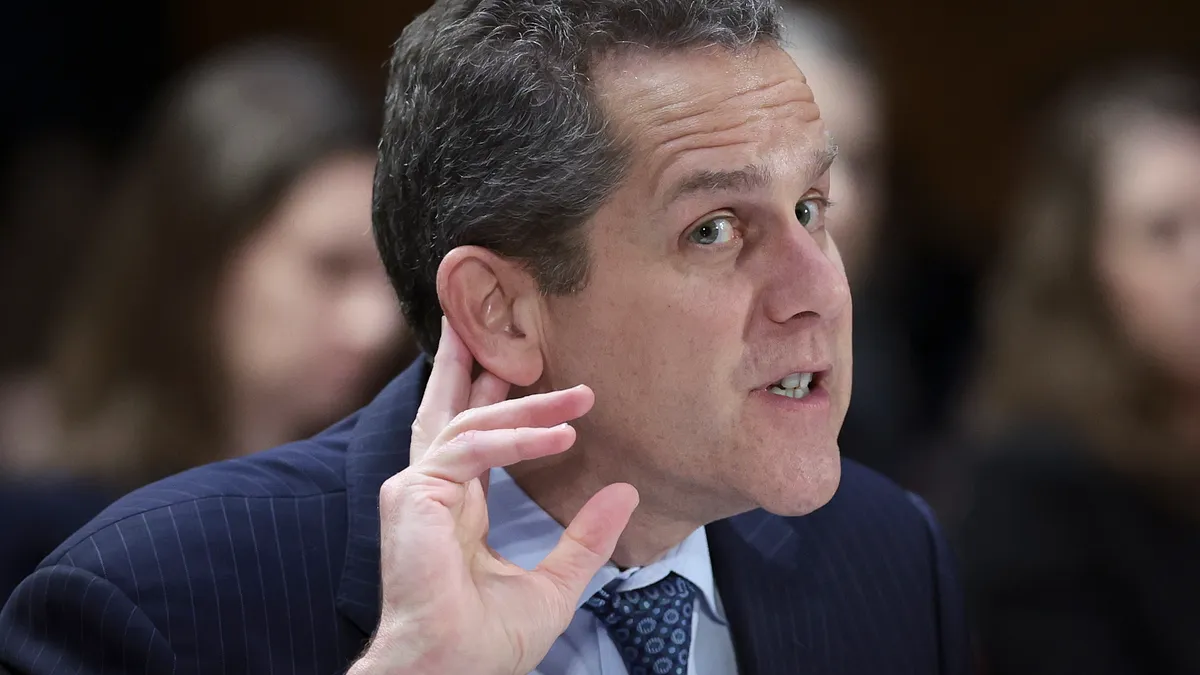"Oh my." Those words, in a 9:51 a.m. chat on the day Citi mistakenly transferred $900 million to 315 creditors of cosmetics giant Revlon, marked Vinny Fratta's initial realization of how extensive the error might be.
A trial, centered on the payment, opened Wednesday in federal court, with Fratta, a senior manager in Citi's loan operations group, and other bank employees taking the witness stand.
Fratta represents two of the "six eyes" the bank relies on in its process of reviewing and executing wire transfers that originate in the asset-based transitional finance group.
First, a "maker," generally from the technology company Wipro, manually puts payment information into Citi's Flexcube loan processing system. Then, another Wipro employee serves as a "checker" on the initial step. Finally, an "approver" from Citi — in this case, Fratta — checks the Wipro employees' work a final time.
The Flexcube system, Fratta said in a declaration filed in court, has a default mode that will send a wire payment unless the maker overrides that option. That box was checked for some but not all of the Revlon payments that were distributed Aug. 11, Fratta said.
Initially, Fratta said he thought the error was the result of a technical failure.
"As the day wore on," he said, according to Bloomberg, "I accepted that the mistake had not been caused by any sort of glitch but rather by human error, and that I was one of the humans responsible for the error."
Fratta oversees a team of six Citi employees based in Delaware and nine Wipro employees in India who work exclusively with the bank, Bloomberg reported.
"‘Oh my,'" Fratta said he told the India-based contractor who served as the "checker" in Citi's "six eyes" protocol for the Revlon transfer. "Did we have proof that the wires went to the specific lender identified in his email? Did it go to all lenders? How much was the overpayment?"
Fratta said he meant to transfer interest payments of roughly $7.8 million and to reflect a "non-cash transfer" of nearly $900 million to an internal account that Citi maintains.
That Citi's loan operations software allows for such an error potentially contributed to the $400 million fine the Office of the Comptroller of the Currency (OCC) levied against the bank in October over what the regulator called "deficiencies in enterprise-wide risk management, compliance risk management, data governance, and internal controls."
The threat of regulator reprimand, among other factors, prompted Citi CEO Michael Corbat to push up his expected retirement date to February, when Jane Fraser will take over as the bank's top executive.
Several Revlon creditors have returned their portions — about $390 million — of the transfer and, in earlier court action, Citi persuaded a judge to order a temporary freeze on $412 million. But other creditors — Brigade Capital Management, HPS Investment Partners and Symphony Asset Management, in particular — have said the money is theirs, even though it wasn't due until 2023. They point to a 1991 New York court ruling that a creditor can keep, as "discharge for value," money transferred in error under certain circumstances.
To that end, Vincent Farrell, Citi's North American loan chief, testified Wednesday he "encountered resistance" nearly immediately from some of the defendants when the bank asked to return the funds.
A Brigade representative, when told it was an "urgent matter" and asked if the creditor would return the money, told Farrell "the matter was still being considered" and he would have to get back to him, Farrell said in a declaration filed with the court.
An HPS employee said he would check with others and report back but never did, Farrell said.
Symphony sent an email asking the bank to stop "harassing" it, Farrell testified.
"This was puzzling, because we had never had the chance to speak to anyone at Symphony and had not received a response to any of our emails," he said, according to Bloomberg.
Asked by the defendants' lawyers what he would do if he were in the creditors' shoes, Farrell said he would make inquiries and expect an additional notice explaining such a payment — and to "return the funds if that's what I was told to do."
The trial resumes Thursday via video conference and without a jury, and is expected to last four days.






















